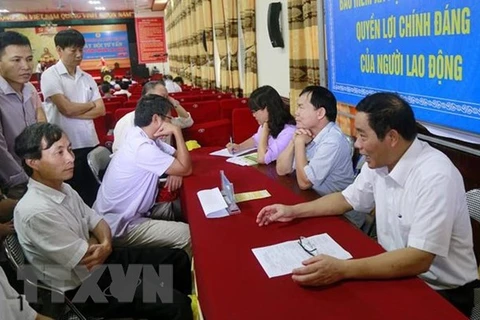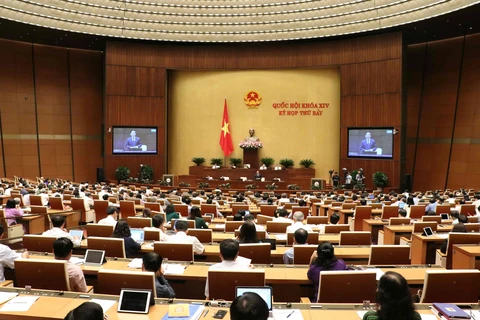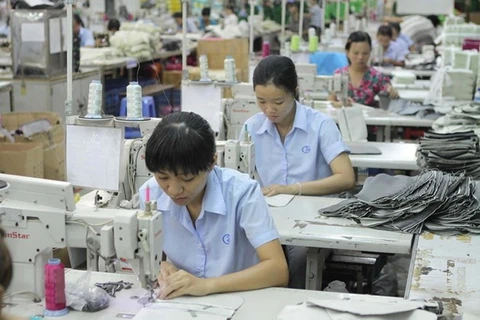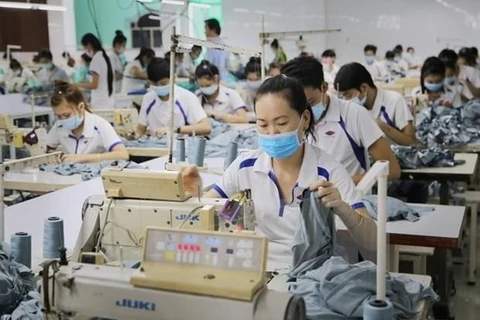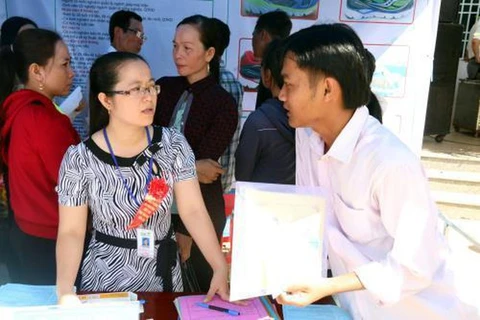HCM City (VNS/VNA) - Disruptive change is leading to the re-regulation of work and employment around the world, including in Vietnam, Gregor Murray of the University of Montreal in Canada, said.
“Disruptive change creates uncertainty, destabilises existing forms of work regulation, and pushes economic and social actors to seek new solutions, often combining old and new forms of regulation, and engaging in reflexivity by trying to think through the implications of what they’re doing,” he said.
Murray spoke at a two-day international conference on global challenges and local responses for transformation of labour relations which started in Ho Chi Minh City on July 15.
Social actors who are better equipped in terms of resources and capabilities are more likely to contribute to better, and not worse, work, he said.
However, there is a need to determine what resources and capabilities are needed, and in what contexts.
"The challenge of better work includes economic and social risk, the control over one’s work and working life, and competencies and voice at the individual, organisational, and societal levels,” he said.
"Six fault lines" that lead to re-regulation or a new hierarchy of regulation of work and employment are: disruptive technologies, redefinition of the role of the State, unbundling of the firm, reconfiguration of global production networks, sustainable development, and shifts or disconnects in identity, solidarity and values.
Dr Do Quynh Chi of the Research Centre for Employment Relations said that external influences such as the CPTPP and EVCTA trade agreements build upon internal demands to result in institutional changes, but may also hamper internal labour reform.
All of these factors should force Vietnam to make commitments to comply with core labour standards, Chi said.
The trade agreements also expand export-oriented industries in the country, she said, adding that 95 percent of key exports are made through global supply chains, leading to more stringent monitoring of corporate social responsibility (CSR) standards in the chains and price squeezing.
CSR compliance results in rising costs, but suppliers do not reward for compliance and brands face pressure to lower production prices by 5 percent to 10 percent each year, Chi said.
That is why suppliers tend to lower labour standards to minimise labour costs, she explained. Fierce competition may make companies resist labour reform since suppliers have to compete on labour costs within the supply chain.
In addition, Vietnam faces challenges to escape the middle-income trap, she added. Because of these influences, the country has gradually reformed labour legislation, she said.
Technological innovation causes a long-term reduction of labour demands, and a growing need for labour upskilling, as well as more staff in information industries, she said.
New forms of employment relationships are also being created, and new ways to protect workers’ rights and interests are needed.
Sean Cooney of the Melbourne Law School noted that "triangular work" was becoming more common in many countries.
“While there are many problems caused by fissuring, there are already many innovative solutions that can be considered in formulating responses,” he added.
The conference at the HCM City University of Law was attended by many local and foreign legal experts, policymakers, researchers and NGO delegates.
The conference's main aim was to help Vietnam ensure labour rights and benefits. It was held by the university in cooperation with the Southern Institute of Social Sciences.
Vietnam is a signatory to the ILO Convention 98 on the Right to Organise and Collective Bargainiing and is collecting opinions on an amended labour code.
The conference discussed legal frameworks, labour standards, social compliance, globalisation and gender relations in formal and informal sectors, and diverse perspectives of labour, capital and the State in a globalising economy.-VNS/VNA
VNA

